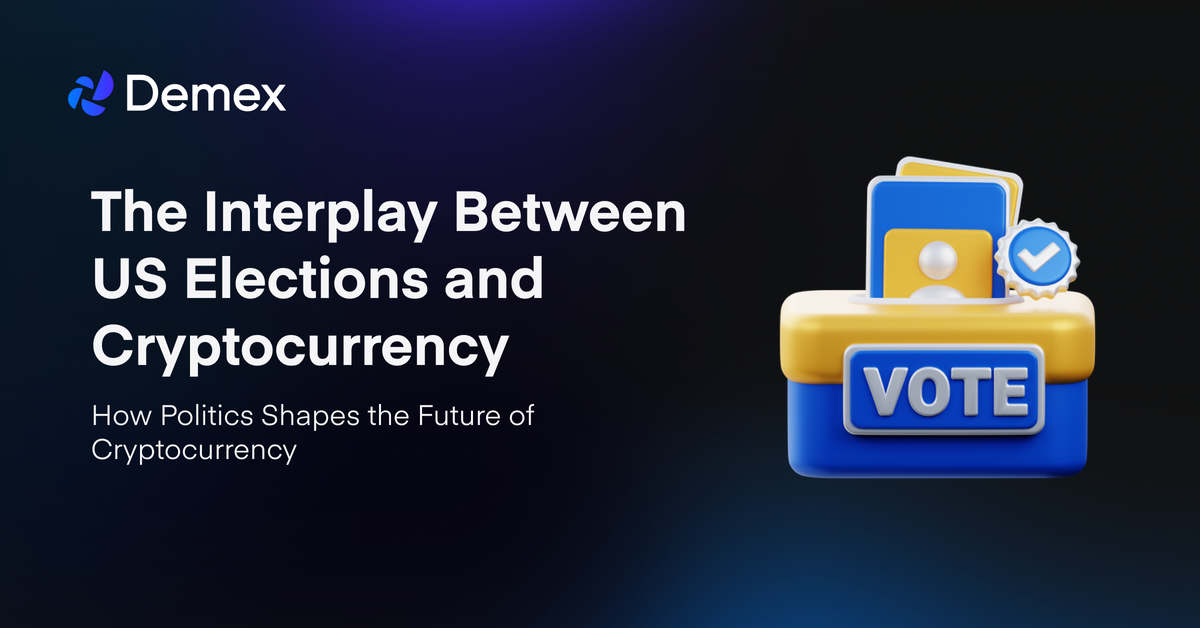The Interplay Between US Elections and Cryptocurrency

The relationship between US elections and the cryptocurrency market is a dynamic interplay that significantly influences both domains. Cryptocurrencies, once a niche market, have now entered the mainstream financial dialogue, making them a key issue in political discourse. As political parties vie for control, their stance on cryptocurrency can shape policy, regulation, and ultimately the market itself. Conversely, the developments within the cryptocurrency market can impact voter sentiment and political campaigns. This article explores the mutual influence between US elections and cryptocurrencies, detailing the positions of political parties and the implications of ongoing SEC cases.
The Influence of US Elections on Cryptocurrency
Political Stances and Policy Formulation
Democratic Party
The Democratic Party has generally shown a cautious approach toward cryptocurrency. Concerns about consumer protection, financial stability, and the potential for illicit activities have led to calls for stringent regulations. Prominent figures like Senator Elizabeth Warren have been vocal critics, advocating for tighter oversight and stronger regulatory frameworks. However, some Democrats see the potential for blockchain technology to drive financial inclusion and innovation, leading to a nuanced internal debate.
Republican Party
The Republican Party tends to adopt a more favorable stance toward cryptocurrency, viewing it as an avenue for innovation, economic growth, and individual financial freedom. Key proponents like Senator Cynthia Lummis have championed cryptocurrencies, arguing for a balanced regulatory approach that fosters innovation while protecting consumers. The party's inclination towards deregulation aligns with the principles of the cryptocurrency community, advocating for minimal governmental interference.

Cryptocurrency's Influence on US Elections
Campaign Financing and Voter Engagement
Campaign Contributions
Cryptocurrencies have emerged as an alternative channel for campaign contributions, allowing candidates to tap into a new, tech-savvy donor base. Cryptocurrencies offer a level of anonymity and security that traditional financial systems may not provide, potentially opening up new avenues for donations and contributions to political parties or candidates. The decentralized and borderless nature of cryptocurrencies enables broader participation, although it raises concerns about transparency and foreign interference.

Voter Sentiment
As the cryptocurrency market grows, so does its voter base. Candidates' stances on cryptocurrency can influence the voting decisions of millions of crypto investors and enthusiasts. Policies perceived as favorable to the crypto industry can garner support from this demographic, while stringent regulatory proposals might alienate it.
Election Interference
The use of cryptocurrencies in election interference has raised concerns about transparency and accountability. The anonymity associated with certain cryptocurrencies can make it challenging to trace the sources of funding, leading to questions about the legitimacy of financial support in the political sphere.
The SEC and Ongoing Regulatory Battles
SEC's Role and High-Profile Cases
Regulatory Clarity and Market Stability
The US Securities and Exchange Commission (SEC) plays a pivotal role in shaping the cryptocurrency landscape through its enforcement actions and regulatory guidelines. High-profile cases against entities like Ripple Labs and Coinbase have significant implications for market stability and investor confidence. The regulatory landscape surrounding cryptocurrencies, particularly in the context of election financing, is a topic of ongoing debate. The SEC has been actively involved in addressing cases related to cryptocurrency fraud and illegal activities. These cases not only impact the financial sector but also have implications for political actors who may be involved in cryptocurrency transactions.
Political Implications
The SEC's actions often reflect the broader regulatory posture of the incumbent administration. Under a Democratic administration, the SEC has pursued more aggressive enforcement, reflecting the party's cautious stance on cryptocurrency. Conversely, a Republican administration might influence the SEC to adopt a more lenient approach, prioritizing innovation and market growth.
The Impact of US Elections on Cryptocurrency, the Market, and Innovation
The US elections significantly impact the cryptocurrency market and the sector's overall innovation and growth. Election outcomes influence regulatory approaches, which can either foster or hinder the development of the cryptocurrency industry. For instance, a pro-crypto administration might implement favorable policies, reducing regulatory hurdles and encouraging investment in blockchain technology. This can lead to increased market confidence, higher cryptocurrency prices, and accelerated innovation within the sector. Conversely, an administration with a cautious or adversarial stance towards cryptocurrencies might introduce stricter regulations, creating uncertainty and potentially stifling growth and innovation. Additionally, the political discourse during election periods often highlights cryptocurrency's role in the economy, bringing it to the forefront of public and investor attention, which can further drive market volatility and speculative investment. Overall, the US elections play a pivotal role in shaping the trajectory of the cryptocurrency market and its evolution.
The TLDR
The relationship between US elections and cryptocurrency is a dynamic interplay where political stances and regulatory approaches significantly influence the cryptocurrency market's growth and stability. Political parties have varied stances, with Democrats often favoring stringent regulations and Republicans advocating for innovation-friendly policies. Cryptocurrencies also impact elections by influencing campaign financing and voter sentiment. The ongoing SEC cases highlight the need for balanced regulations that protect investors while fostering innovation. Understanding these dynamics is essential for ensuring the integrity and transparency of electoral processes in the digital age.

